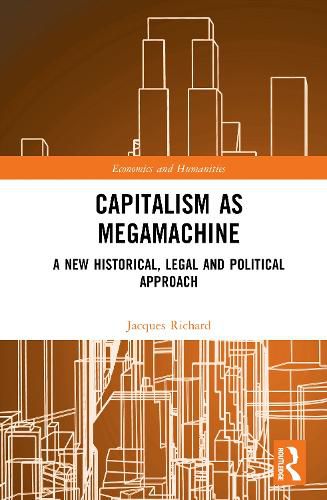Readings Newsletter
Become a Readings Member to make your shopping experience even easier.
Sign in or sign up for free!
You’re not far away from qualifying for FREE standard shipping within Australia
You’ve qualified for FREE standard shipping within Australia
The cart is loading…






The concept of a "megamachine" - a closed system operating to a pre-established utilitarian purpose which results in the machinisation of humanity - has existed in various forms since at least the late 19th century.
This book builds on previous attempts to define and analyse the machine and argues that modern industrial capitalism is at the heart of it. The first part of the book takes stock of previous attempts to explain the origin and nature of the Megamachine phenomenon, from Nietzsche to the 21st century, including Mumford, Latouche and Scheidler. The second part of the book proposes a new analysis of the nature of the Megamachine, beginning with a historical, sociological and political exploration of the development of modern capitalism from the Middle Ages to the present day. It is shown that the modern world is under the yoke of accounting and corporate laws which ratify, on an international scale, the systematic protection of financial capital to the detriment of natural and human capitals: a Megamachine of accountants and managers. Defeating the machine will require more than minor reforms such as carbon pricing and integrated reporting: it will be necessary to initiate a programme of cooperation, education and economic policy reorientation on a global scale.
This vital book on the crisis of capitalism, the concept of the Megamachine and the future of global society will be of great interest to readers across the social sciences and humanities.
$9.00 standard shipping within Australia
FREE standard shipping within Australia for orders over $100.00
Express & International shipping calculated at checkout
The concept of a "megamachine" - a closed system operating to a pre-established utilitarian purpose which results in the machinisation of humanity - has existed in various forms since at least the late 19th century.
This book builds on previous attempts to define and analyse the machine and argues that modern industrial capitalism is at the heart of it. The first part of the book takes stock of previous attempts to explain the origin and nature of the Megamachine phenomenon, from Nietzsche to the 21st century, including Mumford, Latouche and Scheidler. The second part of the book proposes a new analysis of the nature of the Megamachine, beginning with a historical, sociological and political exploration of the development of modern capitalism from the Middle Ages to the present day. It is shown that the modern world is under the yoke of accounting and corporate laws which ratify, on an international scale, the systematic protection of financial capital to the detriment of natural and human capitals: a Megamachine of accountants and managers. Defeating the machine will require more than minor reforms such as carbon pricing and integrated reporting: it will be necessary to initiate a programme of cooperation, education and economic policy reorientation on a global scale.
This vital book on the crisis of capitalism, the concept of the Megamachine and the future of global society will be of great interest to readers across the social sciences and humanities.